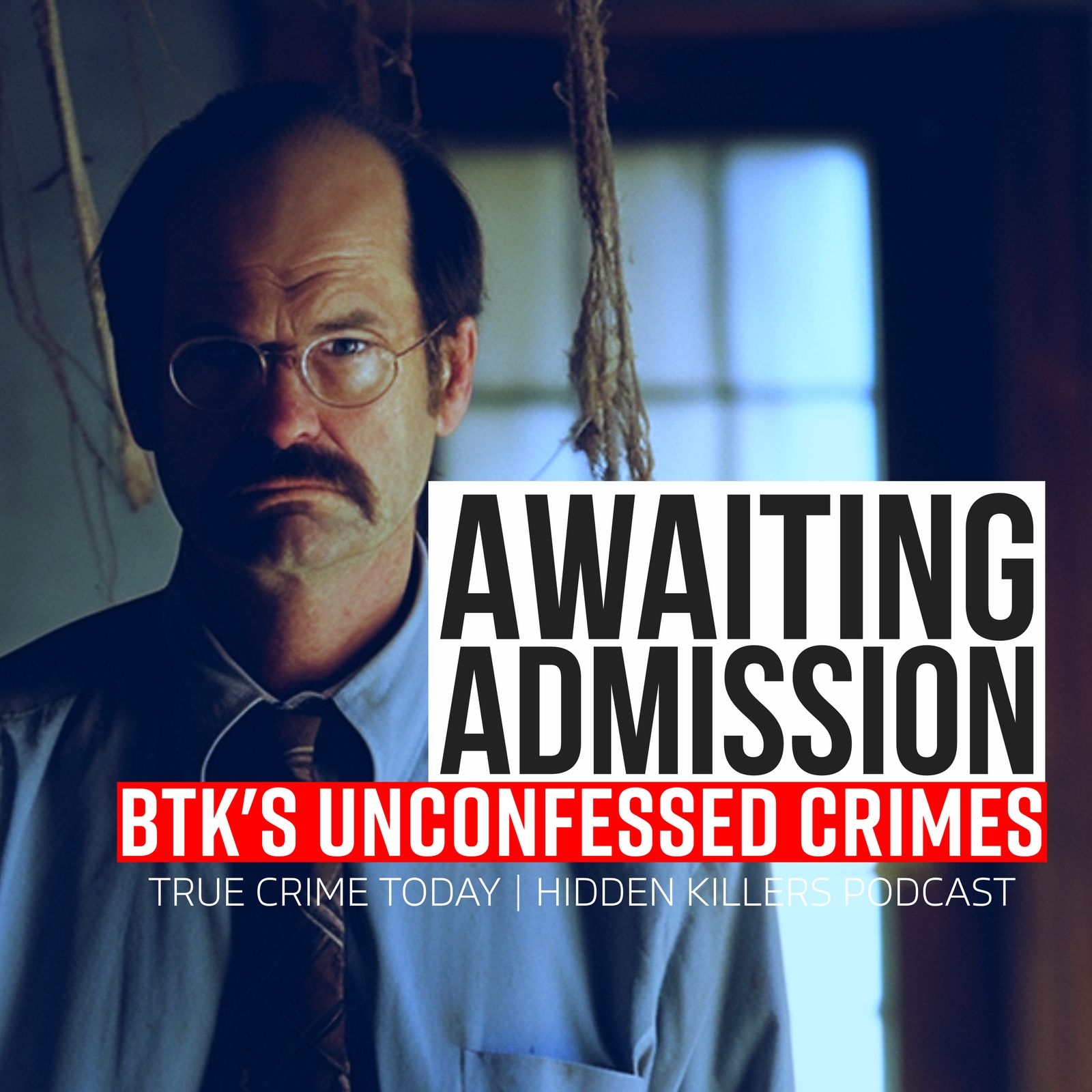Could New BTK Conviction Send Dennis Rader To Death?
Description
A new case against the infamous serial killer, Dennis Rader, popularly known as the BTK (Bind, Torture, Kill) killer, is strengthening, with a murder from 1976 in Osage County, Oklahoma, appearing to match his modus operandi. In a recent episode of the "Hidden Killers" podcast, hosts Tony Brueski and former Federal prosecutor Neama Rahmani discuss the implications of this development, as well as Rader's recent behavior and comments on other cases.
Brueski and Rahmani explore three main factors in the episode. First, the importance of justice and closure for the victims' families, even though Rader is already serving life sentences. "Even though he's serving life, the folks that have lost a loved one that's been missing for so many years, they deserve that closure, that justice," Rahmani states.
The second factor discussed is the death penalty. Kansas did not reinstate the death penalty until 1994, so law enforcement and prosecutors were unable to seek the death penalty for Rader's crimes in Kansas. However, if a qualifying case could be found in Missouri or Oklahoma, where the death penalty was reinstated earlier, it could lead to Rader's execution. "So if you can get a death penalty, qualified case, and maybe have a chance of finally putting Dennis Rader to death," Rahmani speculates.
The third factor discussed is Rader's apparent desire for attention and publicity. Brueski notes that Rader has been commenting on other cases over the last year, seemingly enjoying the attention it brings. "He seemed to have, I think, found a little niche where people were paying attention to him, which I'm sure he loves," Brueski observes.
Rahmani also discusses the role of familial DNA in the case, referencing the Golden State Killer and noting that law enforcement now has an advantage they did not have 10 or 20 years ago. Rader's daughter, Carrie Rawson, has previously stated that Rader was offered transactional immunity to confess to the murders, although he has not taken up the offer. Rawson was instrumental in Rader's arrest, as DNA from her pap smear was matched to one of the victims.
The hosts also discuss the possibility of Rader admitting to the crime or going to trial. Brueski notes that Rader admitted to his other crimes nearly 20 years ago during his arraignment in Wichita, but he is unsure if Rader will do the same in this case. "In this case though, I don't know. It has the signatures of him. Even if it is him, I don't know that he is just going to give it up that easy," Brueski says.
Ultimately, the hosts agree that Rader is unpredictable and that his actions in court will be a spectacle, regardless of the outcome. Rahmani notes, "It's not really gonna matter obviously, but it will be a spectacle to say the least."
In conclusion, the recent developments in the 1976 murder case in Osage County, Oklahoma, bring new hope for justice and closure for the victim's family. However, the possibility of a death penalty, Rader's desire for attention, and the role of familial DNA make the case complex and unpredictable. As the case progresses, all eyes will be on Dennis Rader and the court's proceedings, as the world waits to see if another victim of the BTK killer will finally receive justice.
Want to listen to ALL of our podcasts AD-FREE? Subscribe through APPLE PODCASTS, and try it for three days free: https://tinyurl.com/ycw626tj
Follow Our Other Cases: https://www.truecrimetodaypod.com
The latest on Catching the Long Island Serial Killer, Awaiting Admission: BTK’s Unconfessed Crimes, Chad & Lori Daybell, The Murder of Ana Walshe, Alex Murdaugh, Bryan Kohberger, Lucy Letby, Kouri Richins, Justice for Harmony Montgomery, The Murder of Stephen Smith, The Murder of Madeline Kingsbury, and much more! Listen at https://www.truecrimetodaypod.com
More Episodes
Published 12/31/24
Published 06/20/24
Published 06/19/24


